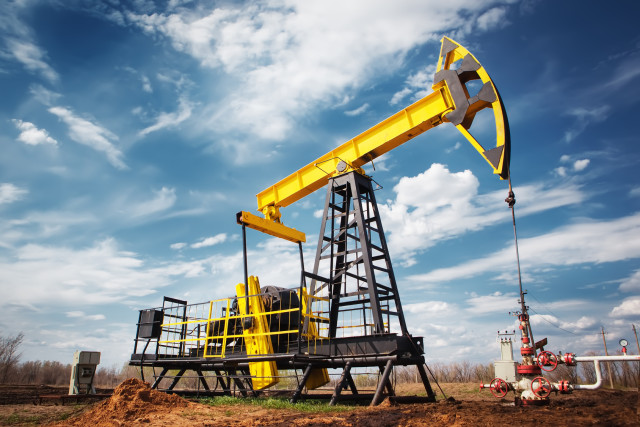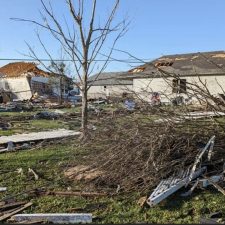
Most people know the importance that the oil and gas industry has played in the development of Louisiana over the years. The industry has employed thousands of Louisiana residents and pumped millions of dollars into the economy. All you have to do is take a drive around the state, particularly in the rural parishes, and you will see the prevalence of oil and gas operations.
However, like with all natural resource production, there is the potential for environmental impacts. These impacts, coupled with some favorable court decisions, have led to the growth in legacy litigation. You may have heard about legacy lawsuits but may not know much about them.
So, here are the answers to some common questions regarding oilfield lawsuits in Louisiana:
1. What Are Legacy Oilfield Lawsuits?
“Legacy” sites typically refer to sites that were used for oil and gas exploration and production, often for operations that have been completed for many years. Legacy lawsuits refer to a type of business litigation where landowners seek to require oil and gas companies to pay for the restoration of environmentally damaged properties.
2. When Did Louisiana Legacy Lawsuits Start Getting Filed?
Legacy lawsuits have been going on for many years, but the numbers increased significantly after the Louisiana Supreme Court’s 2003 decision in Corbello v. Iowa Production. This is because the Corbello case allowed plaintiffs to recover the costs necessary to restore property to its original condition under a contract, regardless of the value of the property.
3. How Did These Legacy Sites Get Contaminated?
Typically, legacy lawsuits allege that properties have been contaminated as a result of the use of unlined earthen pits. Although they were not always utilized in operations, sometimes saltwater and other byproducts of production were stored or disposed of in earthen pits (simply holes in the ground). The focus of most legacy cases is that the use of pits allowed chemicals to seep down into the soil and groundwater and cause contamination.
Plaintiffs have also alleged that the use of saltwater injection wells can allow for the spread of contaminants into groundwater.
4. What Chemicals Have Been Found in Legacy Sites?
Most legacy lawsuits involve allegations of salt contamination, but a multitude of other chemicals (such as arsenic, barium, and naturally occurring radioactive materials/radium) have been also been found.
5. What Gives Landowners the Right to Sue?
Landowners almost always claim a right to have their property cleaned up under the terms of a mineral lease or surface lease. Some leases, like in Corbello, have provisions requiring landowners to clean up property to its original condition. Others may not have those provisions, but Louisiana courts have still still implied cleanup terms into leases. (See Terrebonne Parish School Board. v. Castex Energy).
There are also arguments that, regardless of the contract, oil companies owe a tort duty to the landowner not cause harm to their property.
6. What Defenses Do Oil Companies Have to Legacy Lawsuits?
Though the exposure in legacy lawsuits is significant, there are not many defenses available to oil companies. The most common defense is that the landowner waited to long to file suit. In Louisiana, this concept is called “prescription” (other states call it the statute of limitations). Oil companies will argue that the landowner knew or should have known of their claim and simply waited too long.
Another defense is called the “subsequent purchaser” doctrine. This can prevent a landowner who acquires property after an oil company stopped operating from suing the oil company.
Oil companies will also argue that the cleanup proposed by the plaintiff is far too invasive. They argue instead that all that should be required is a cleanup in accordance with state regulatory standards.
Lastly, in some instances, energy companies will claim that the amount of recoverable restoration costs should be limited to the value of the property. (See Roman Catholic Church v. Louisiana Gas Service Company).
7. Are Punitive Damages Available in Legacy Oilfield Cases?
It depends. Louisiana law (former Louisiana Civil Code article 2315.3) allowed for punitive damages for storage and disposal of toxic and hazardous substances, but only for a limited window of time: 1984 and 1996. If the operations at issue occurred before or after that period, there likely will be no possibility for punitive damages.
8. Have Their Been Large Verdicts in Louisiana Legacy Lawsuits?
Yes. There have been numerous multi-million dollar verdicts in legacy lawsuits from around the State of Louisiana:
- Corbello v. Iowa Production (Calcasieu Parish): awarding $33 million for remediation;
- Dore Enegy v. Carter Langham: (Cameron Parish): awarding $57 million for remediation;
- Marin v. Exxon Mobil Corporation (St. Mary Parish): awarding over $21 million for remediation; and
- Savoie v. Richard (Cameron Parish): awarding $18 million for remediation.
However, there have been several cases (ex. Meaux v. Hilcorp Energy Company and Houssiere v. ASCO USA) where plaintiffs were unsuccessful in obtaining any remediation damages.
9. Has There Been Legislation to Curb Legacy Lawsuits?
Yes. Act 312 of 2006 (La. Rev. Stat. 30:29) was an attempt to regulate legacy oilfield lawsuits. Though the statute has been subject to repeated revisions and challenges, the general idea is that funds necessary to cleanup property in accordance with regulatory standards will be deposited into the registry of the court and earmarked for that purpose. It attempts to accomplish this laudable goal by setting forth a procedure for the development of a remediation plan after a judge or jury determines that remediation is required.
Even though the statute has been in effect for almost a decade, there has only been one case, out of the hundreds filed, that has gone all the way through the process. Given this limited use, only time will tell if the goals of the statute will actually be achieved.
10. Will Legacy Lawsuits Continue?
Absolutely. Despite numerous efforts to stop legacy lawsuits or to reduce the exposure to the oil and gas industry, legacy lawsuits are still one of the most prevalent areas of oil and gas litigation in Louisiana, and there is no indication that they will stop being filled any time soon. As a consequence, it is important for both landowners and those who work within the industry to understand the issues surrounding legacy cases so they can be aware of their rights and obligations going forward.
Call a New Orleans Environmental Lawyer
If you find yourself in an oil and gas or other environmental dispute, The Mahone Firm can help. Call (504) 56-7342 to discuss your case with an attorney today.






